
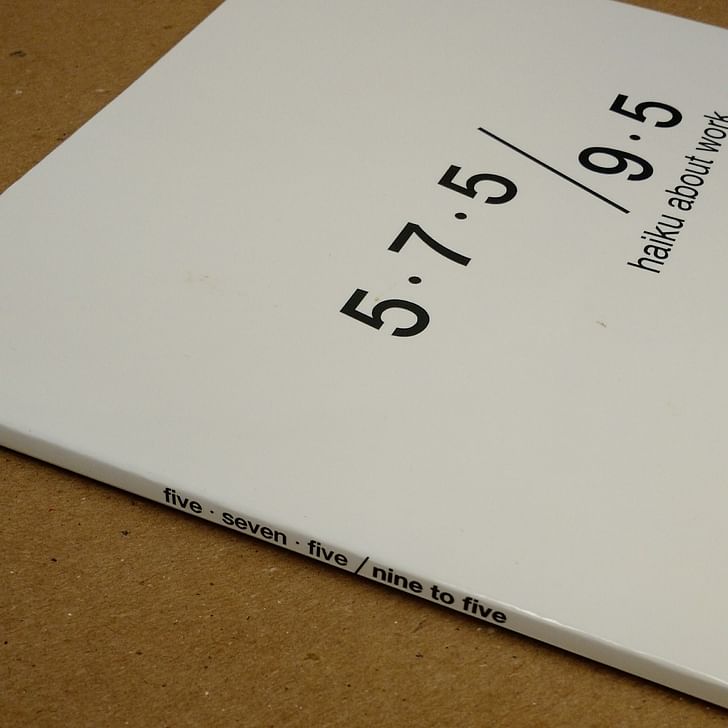
Created by three contributors who wish to remain anonymous, Five Seven Five: Nine to Five is a collection of haiku that wryly (and occasionally cynically) explores the realities of day-to-day architectural employment, from choosing between SketchUp and Revit to the challenges of working with developers.
Haiku, a form of Japanese poetry with three lines that limits writers to five syllables in the first line, seven syllables in the second, and five syllables in the last, has experienced a snarky renaissance in the short-form mediums of texting and social media. Archinect put out an open call for editorial submissions that featured architectural criticism in this form, and Five Seven Five: Nine to Five came in, guns blazing.
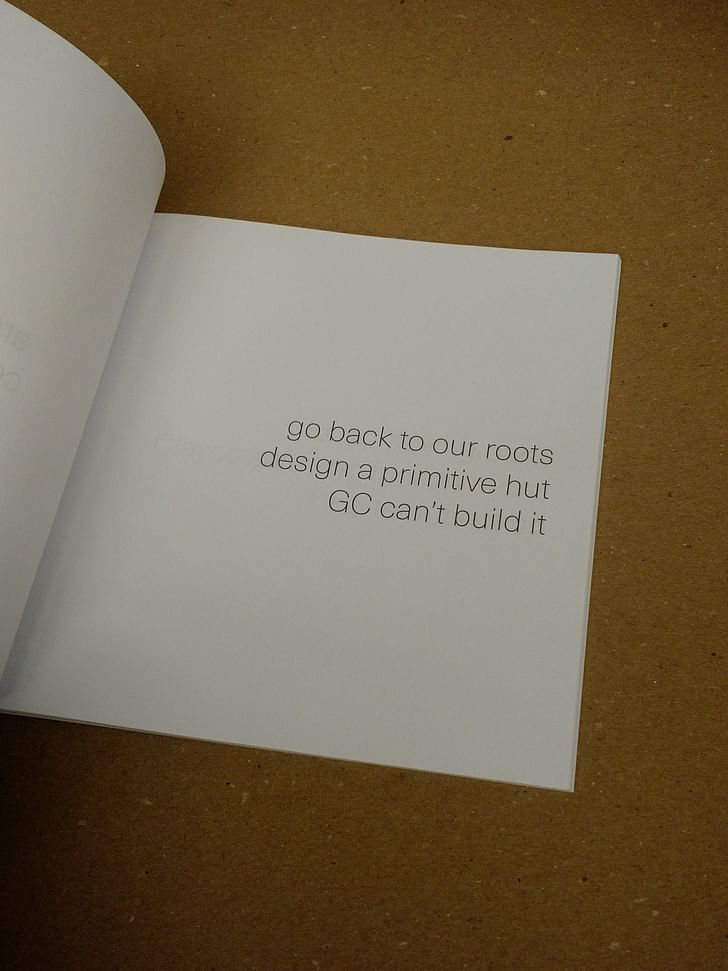
The anonymous contributors behind the chapbook began casually texting each other haiku during their work days, to alleviate tension with a little humor. They decided to compile their syllabically-constrained musings about architectural labors into a collection, broken down by different subject areas ("Culture" and "Means and Methods" among them). I had the opportunity, via email, to ask the three contributors about the origin, anonymous execution, and distribution of their chapbook. Our conversation follows.
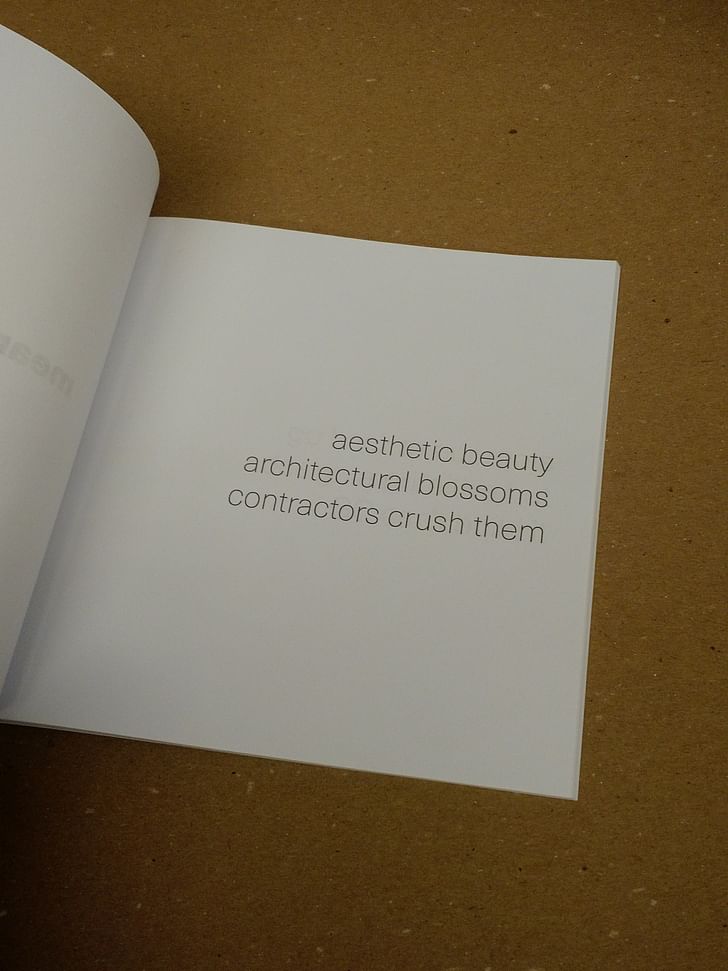
Can the three of you each briefly describe your backgrounds and what motivated you to take this on? I realize you're trying to stay anonymous, but can you give a general overview? For example, I know one of you contributes pieces to respected architectural publications: did writing pieces on a regular basis increase your desire to put together a book of haiku?
1: I come to architecture from a no-bullshit background where making things, working with your hands, is a way of life, and a living. In school I engaged with the pedagogy and theory in a somewhat bemused way—something to be absorbed and mastered, no doubt, but also infiltrated and exploited—humor is one way to do that. Corporate practice is inherently constraining and full of bullshit. In many cases there is nothingCorporate practice is inherently constraining and full of bullshit. to be done about it other than to celebrate the fleeting absurdity. Two of us were working in an office together and this started as text messages back-and-forth during particularly brutal days. To collect the haiku into a list, then book seemed like a logical, if silly, extension to what had become an ongoing commentary between the three of us.
2: After studying architecture in both undergraduate and graduate school I then worked in a handful of offices around the country, have taught at a few universities, and have written just a bit for a few different outlets about architecture. It's been great so far and [I] am enjoying to continually learn in such a complex and wonderful profession. We are a pretty lucky group to have such an engaging industry to work within.
3: I studied architecture in both undergrad and graduate school, and have worked for small, medium and large offices on projects locally and around the world. There were no lengthy discussions that led to this project; it just happened one day and stuck. It was originally a way to talk about things we were noticing around us at work in a way that was a little playful. Over time it just became the norm. As for the content of the haiku we've written, there is probably too much cynicism, but when things are good you're not looking for an excuse to stop everything and write about it—you just want to keep doing whatever it is that is good.
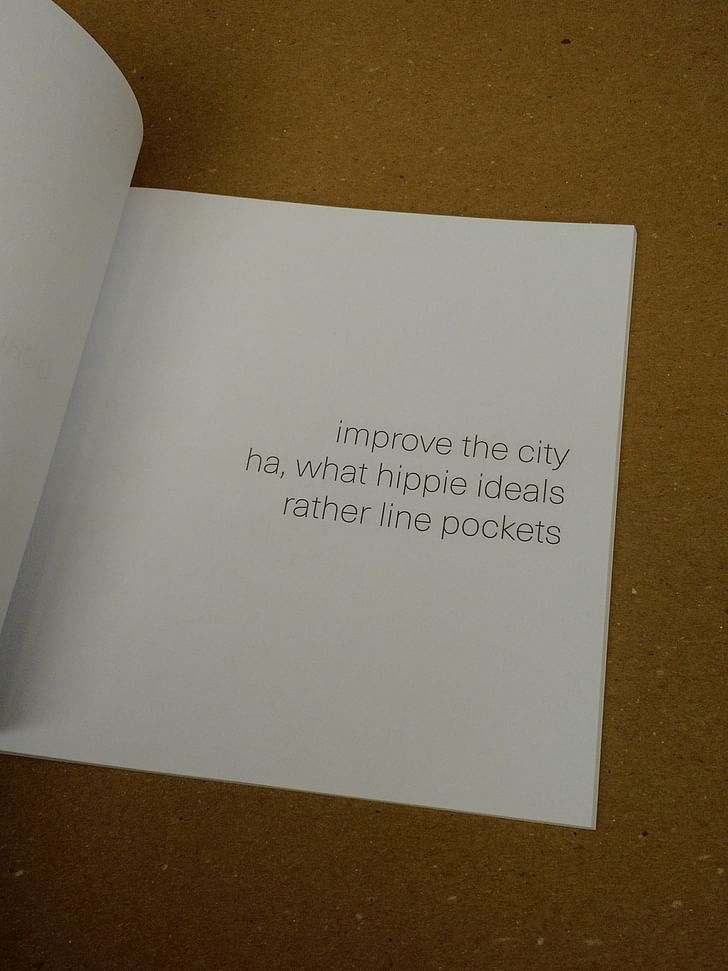
How would you describe the power of haiku in a world of Twitter/Snapchat/etc.?
1: It inherently lends itself to a short format, but the order, rhythm, and precision of the haiku means you can’t just spew whatever stupid 140-characters you were thinking.
2: Haiku is the original tweet. The shortness is great of course in that it shouldn't take long to write one, especially the first draft, while the restrictions of syllables and lines force you to consider word-selection and sequence very carefully to craft a good one. I think the brevity of these modern outlets emulate haiku to a certain degree, but most people don't quite put enough craft into their tweet, Snapchat, or Instagram pic which of course leads to the proliferation of online output available, but they do capture the fleeting nature of the Haiku is the original tweet.moment like a haiku does. I think there are some people out there that achieve this, but certainly not most. Haiku will also most likely not be co-opted by corporations for advertising purposes.
3: Discussion gets exhausting after a while, but taking the time to distill your thoughts into such a rigid structure is a good way to make sure you really have something to say. It also manages to hold its amusement longer. But until there is a messaging app that only allows you to post in haiku, I'm not sure most people would even recognize what we're doing. Now excuse me, I have an app to develop...
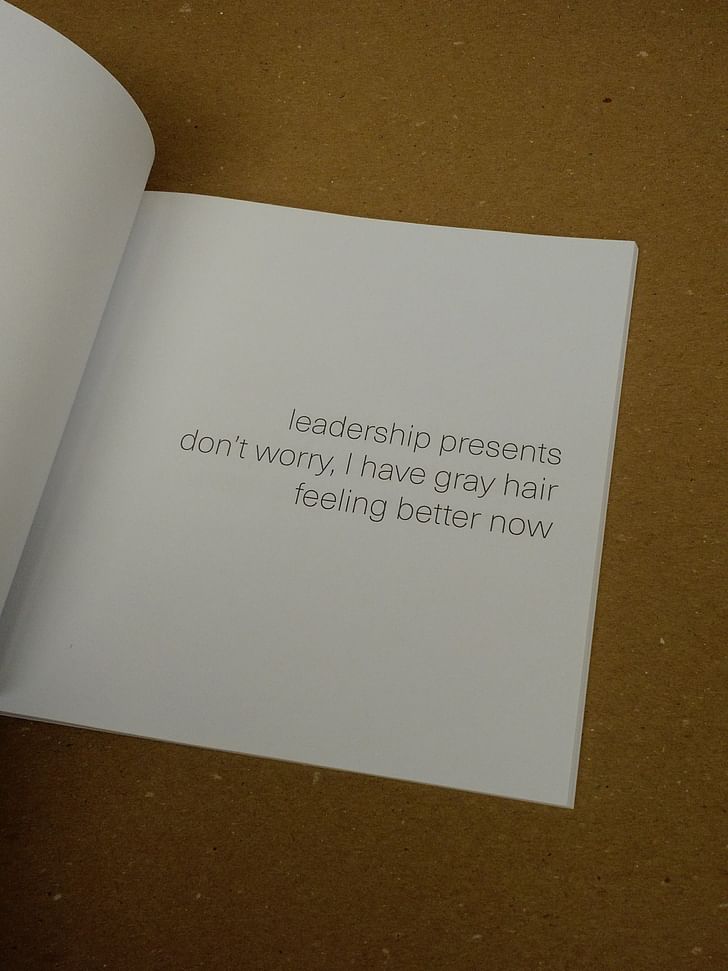
Are contractors indeed evil (as one of the haikus seem to suggest)? What are your feelings on developers: do they benefit the architectural realm, or are they simply making a profit with the hollowed-out shell of aesthetic value and innovation?
1: Contractors and developers are just like everyone else. Some are good, some are bad. Design and construction contracts are often structured in such a way that it pits the different entities against each other instead of aligning them with the success of the project in mind. City zoning and development laws are much the same, though in consideration (or lack thereof) of the collective urban project.
2: HAHA! My experiences with contractors, and developers, vary quite a bit, from innovative, creative, and forward-thinking to at moments only concerned with schedule and money with disregard for quality. While I'm not sure if I'd consider any of them "evil" they certainly both have their moments. Historically haiku have been written I suspect that the negative haiku will sell better!about a fleeting moment in nature and I consider what we've written to often be about that frustrating fleeting moment rather than the overall. Basho didn't write with the consideration of summarizing all of nature, but rather something felt or experienced in a short moment... rustling leaves, moving reflection, a frog jumping, a passing thought... that he was trying to record and convey. I guess we should also write about our good moments, but usually those don't necessitate us getting together to drink so often go less discussed or at least recorded. Also I suspect that the negative haiku will sell better!
3: It depends on how they approach their role in architecture. I would argue that if you look at the best architectural work, there is very likely a story—told or untold—about how various experts with different agendas came together to create something that works on many levels that may not have been created by any of those individuals otherwise. I think contractors and developers need to be involved in the architectural process—architecture cannot be an assembly line—but they also need to understand it and appreciate it for what it is. Architects need to maintain perspective about construction and development needs as well. That said, not everyone thinks this way. Some people would rather come to the process with a list of demands and no explanation for their basis. If the latter was your only experience with contractors or developers, you might start to think they were evil as well.
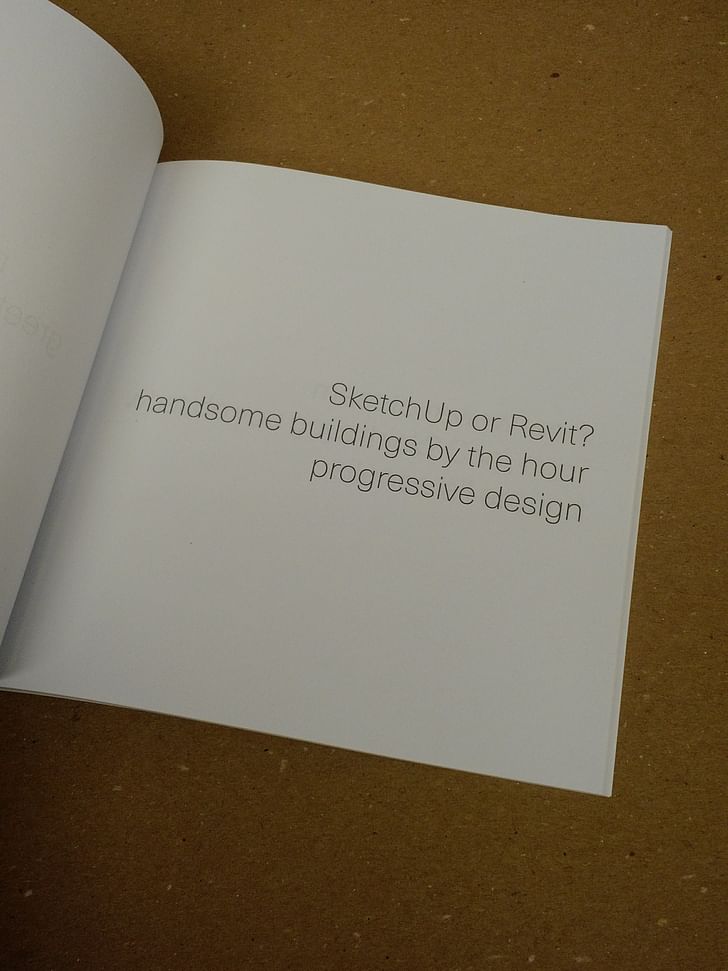
How has the project been received thus far? What are your plans for dissemination/promotion, or do you have any?
1: We have given copies of the book to friends and acquaintances. Beyond that there is no plan for dissemination. If you can find me, I’ll happily give you a copy. We do have a second edition in the works, maybe we will try to distribute it more widely.
2: I haven't put much thought into that. It's always been about quick messages between friends conveying the frustrations of the day more than an interface with a larger public. This will be a good start to consider it more though and see what your readers might have to say.
3: For something so dumb, so far this has been received shockingly well. My initial assumption was that people would immediately question our desire to waste time on something so trivial. I'm not sure we have any grand thoughts about future promotion, other than that app I invented about two minutes ago in the previous question.
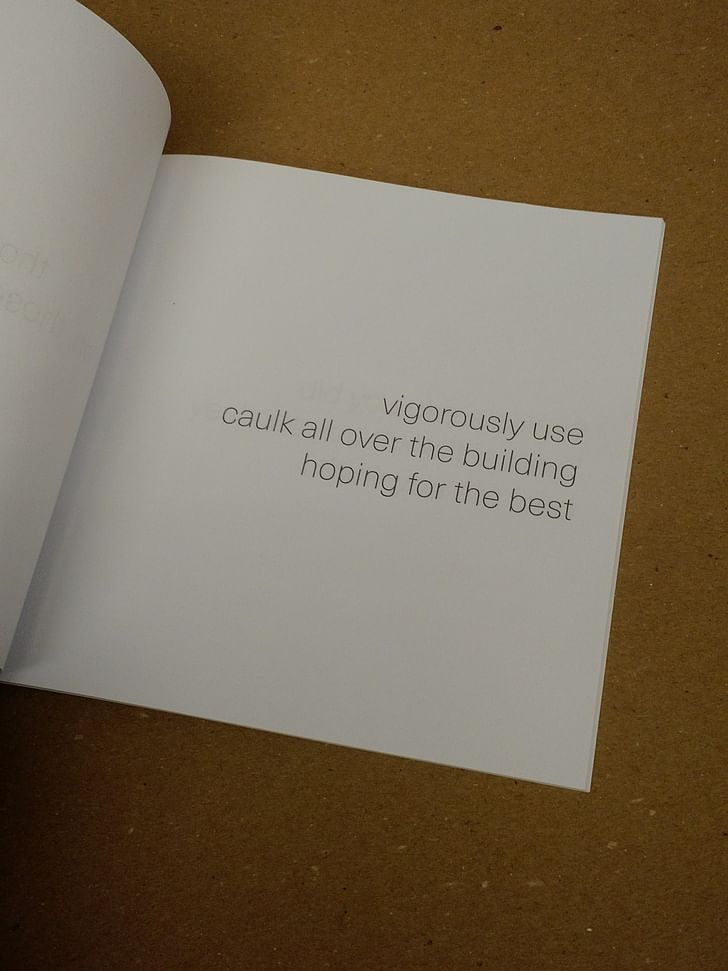
Do you think in the close-knit, easily offended atmosphere of architecture it becomes necessary to remain anonymous in order to put forward bold, potentially offensive ideas?
1: Not at all. It goes back to how one employs criticism. A haiku is too short to have supporting arguments, research, and rationed discussion, or the opportunity for rebuttal—things that I consider necessary for putting my name on a piece of criticism.
2: Since some of the haiku commentary deals with clients, consultants, and coworkers anonymity helps protect those important relationships. And again I would reiterate that the sentiment of the haiku is about a certain moment, not an overall view of that relationship, which is hard to convey in such a short poem. I think other topics of haiku like haiku architectural criticism, which I've seen on Instagram before discussing exhibitions, seems easier to imagine not remaining anonymous and as more of an open dialogue with colleagues about the work presented.
they're funny to read outside of the moment, but also not worth risking future career success over.3: I think most architects have pretty thick skin, actually. We are close-knit though, and over time the profession gets smaller and everybody knows everybody. It's hard to control a message when you don't know your audience, and my guess is that a lot of the haiku we've written would be wildly different had we written them with the intent of publication. Not that long ago we could have gotten away with printing a few of these while still having a sense of who was going to see it. I'm not so sure that's the case anymore. Once this goes live, different people will be reading it with different reactions. We just want to make sure there are no misunderstandings on a personal level. Writing these was a fun way to get a quick message across, and they're funny to read outside of the moment, but also not worth risking future career success over. At the end of the day, I would rather be known in architecture circles for my architecture than for my ability to count to seven.
'Five Seven Five: Nine to Five' was submitted to Archinect's open call for November 2016, XS. Find more XS pieces here.
Julia Ingalls is primarily an essayist. Her work has appeared or is forthcoming in Slate, Salon, Dwell, Guernica, The LA Weekly, The Nervous Breakdown, Forth, Trop, and 89.9 KCRW. She's into it.
15 Comments
i love this so hard
undeserved hubris
in tortoiseshell glasses
your work means so little
I have a feeling I know who is behind this, which means it's going to be damn funny.
ivorykeyboard
missed opportunity to
write that as haiku
(I love this so hard too!!!)
http://archinect.com/forum/thread/25560/official-archinect-haiku-thread
http://archinect.com/forum/thread/50529/architecture-haiku
...and incidentally relevant: http://archinect.com/forum/thread/71949/archinect-pop-quiz
Just in case anyone forgets that Archinect usually gets there first.
Steven - that ought to be a publication. Things that archinect did first on a forum thread or whatever and someone turned it into a project.
Am I missing the link to the actual book? Or article? I'm really unclear about what this is, other than highly amusing.
A link would be nice... I'm shopping for christmas gifts.....
Copied from above ...
How has the project been received thus far? What are your plans for dissemination/promotion, or do you have any?
1: We have given copies of the book to friends and acquaintances. Beyond that there is no plan for dissemination. If you can find me, I’ll happily give you a copy. We do have a second edition in the works, maybe we will try to distribute it more widely.
2: I haven't put much thought into that. It's always been about quick messages between friends conveying the frustrations of the day more than an interface with a larger public. This will be a good start to consider it more though and see what your readers might have to say.
3: For something so dumb, so far this has been received shockingly well. My initial assumption was that people would immediately question our desire to waste time on something so trivial. I'm not sure we have any grand thoughts about future promotion, other than that app I invented about two minutes ago in the previous question.
Hello, does anyone know where I could buy this amazing book? Thanks for your help!
Read some good haikus
Wish I could purchase the book
Someone please help me
Post on Archinect
Hoping for conversation
Here comes Rick Balkins
Thank you SneakyPete, you sure are very talented! Will keep on tryin'
Thank you SneakyPete
you are very talented!
Will keep on tryin'
;)
All it takes is to read carefully! Thank you @Everyday Intern! The answer was right in front of me!
morning, birds chirping
greet the day, serene job site
jerk off in porta-let
Block this user
Are you sure you want to block this user and hide all related comments throughout the site?
Archinect
This is your first comment on Archinect. Your comment will be visible once approved.